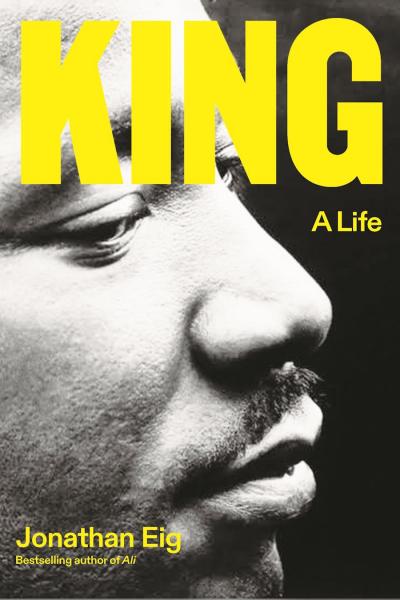This review contains affiliate links, which earn me a small commission when you click and purchase, at no extra cost to you. Thank you for supporting my small business and allowing me to continue providing you a reliable resource for clean book ratings.
Americans have had the opportunity to remember Dr. Martin Luther King Jr. since President Ronald Reagan (reluctantly) signed legislation creating a new holiday in 1983. Ever since 1986, the United States of America recognizes the third Monday of every January as Martin Luther King Jr. Day. All federal institutions are closed, and many cities across the land offer gatherings in Dr. King’s honor. Even so, the author of this tome claims that the vast majority of US citizens do not truly understand the life and motivations of this singular man; this is his attempt to remedy that, now that a large portion of classified surveillance data (and other materials) have been made available for study.
King’s pertinent genealogy is carefully described, including the details of how he obtained his name, based on the 15th-century German priest Martin Luther. His upbringing in a mostly middle-class segregated portion of Atlanta, Georgia, is clearly outlined, and the details of his educational journey are marked out with precision. Once these preliminary data are established, the reader is taken on a tortuous ride of how a gentleman who aspired to theological scholarship became a voice for peace and a target of the US government.
Throughout his short life, Rev. King asserted multiple times that he saw his mission not simply to change the laws and values of America but to redeem the nation’s soul. He firmly posited that if humans are made in God’s image, all humans ought to come together regardless of race or nationality. He even went up against many of his Black contemporaries by emphatically condemning the doctrine of Black supremacy, as it is as evil as a doctrine of white supremacy.
His life was not one of perfection or even complete virtue. He understood this very clearly and spoke on many occasions, “I don’t feel like crying out with the Pharisee, ‘I thank Thee, God, that I’m not like other men.’ But I find myself saying, ‘Lord, be merciful unto me, a sinner.’” He repeatedly promoted the concept of a personal God and believed deeply that if he spoke the words of God, people would listen and be moved to change.
Sadly, the educational system of America has pigeonholed this man as a civil rights activist, ignoring his lifetime of work against poverty, war, wage discrimination, gerrymandering, and a handful of other social ills. In fact, the details of how he came to be in Memphis, Tennessee, when he was assassinated speak volumes to how his religious upbringing and training obligated him to try to make this a better world for everyone, not just his particular race.
If you don’t feel you have the time or energy to work through all 557 pages of this well-written work, do yourself a favor and read the four-page prologue. It is the most succinct of its kind that I have encountered.
Rated: Moderate. Three f-words and 7 vain uses of Deity are the primary uses of profanity. (All are quotes, none from Dr. King himself.) There are roughly 30 mild vulgar terms throughout the book as well, some of which are race-based epithets directed toward multiple races. I must also note that there are 34 instances of the N-word that do not factor into the rating. Very sensitive readers may therefore feel the rating should be High. I assert that much like Roots (Alex Haley, 1976), a story like this cannot be told without that particular term; therefore I did not factor them into the rating.




